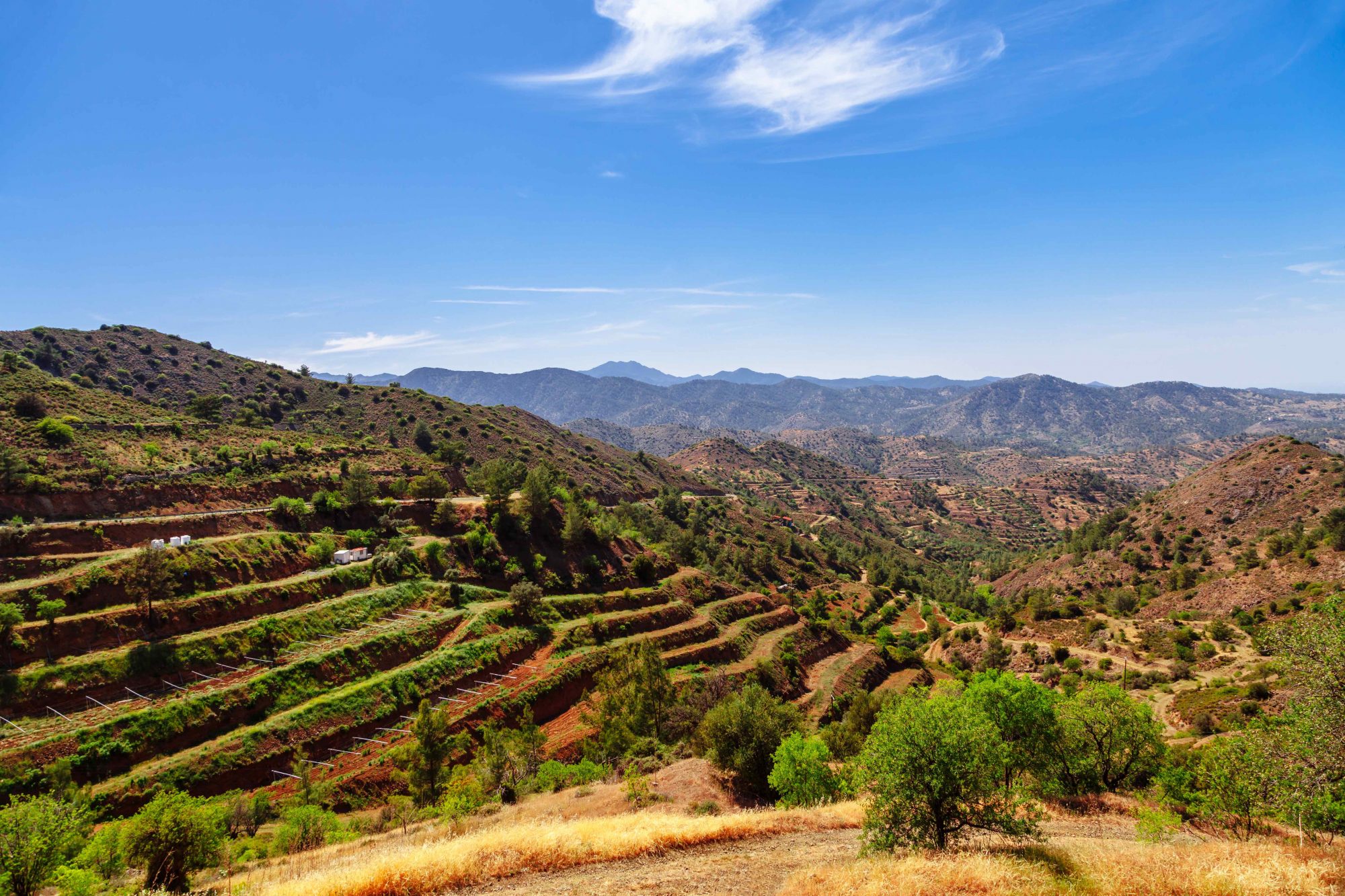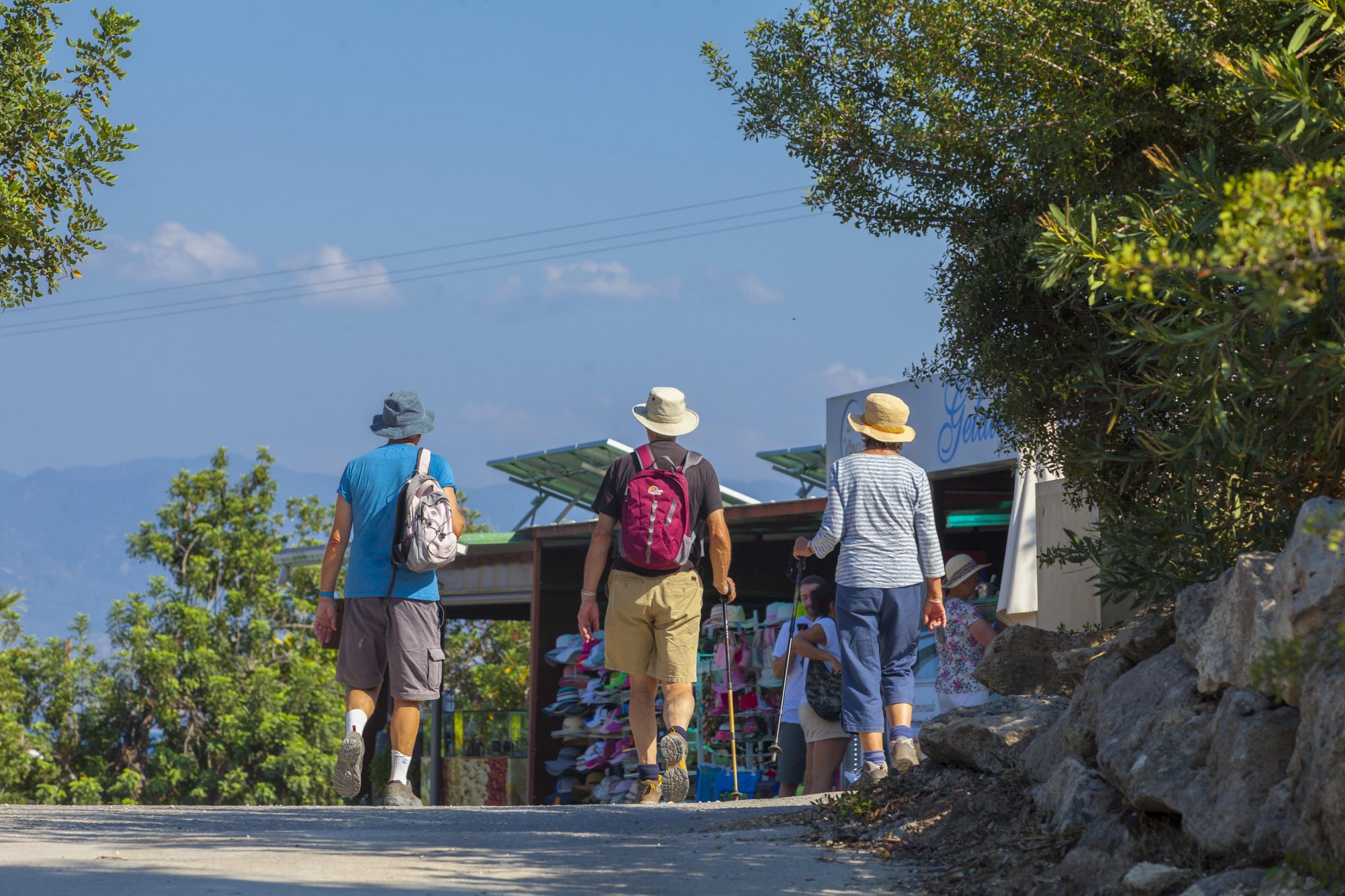Horse Riding & Hiking Tuscon
23.04.2024Summer in Tucson, Arizona, promises great hikes, horse rides and clear skies full of stars. Guest Ranches in and around...
What’s not to love about Cyprus? There are those great beaches, the lively nightlife, the welcoming locals and even a great foodie scene, all at very reasonable prices. But it is a mistake just to think of Cyprus as a beach holiday destination, because there’s much, much more to this great island in the eastern Mediterranean if we stop looking out to sea and instead look to the hills and Troödos mountains rising to nearly 2,000m behind us!
Cyprus may be a small island (although it is the third-largest island in the Mediterranean), but it has a long history and a rich culture that spans 10,000 years of human habitation, resulting in a mosaic of different cultural influences.
Hidden in the countryside and mountains there are remote monasteries to be discovered, dating back to the fourth century, plus sleepy villages with welcoming locals.
A varied landscape offers a range of habitats to enjoy and routes to explore, all within easy travelling distance of wherever you choose to stay during your time on the island.
Of course, you can enjoy the countryside with a glorious mountain hike or a high-paced, exciting bike ride – Cyprus has plenty of opportunities for you there, along with lots of locations to enjoy some SUP (stand-up paddle boarding). For all the details go to: visitcyprus.com, but it can also be fun to really immerse yourself in the traditions and rich natural heritage of a place you visit, sometimes known as slow, or soft tourism. And there are few place on earth, if any, with more traditions and a richer natural heritage than Cyprus.
Cyprus is an island where there’s always something happening, and up in the Troödos region the local villages and tourist board work together to organise themed events and festivals all summer long.
It’s at one of these fun-filled events that you can learn more about the rich history and culture of the area while indulging in the great gastronomy of Troödos, a UNESCO Protected Area.
The Dora Village Revivals Festival in the Dora community square on 27 May is one of the first of the season, with musical and dance events alongside demonstrations of traditional crafts and products like halloumi, palouzes, trahana and local bread.
The Aromatic and Healing Herbs of Cyprus Festival follows a week later – the Conference and Exhibition at the Platres’s Cultural Centre is from 2 to 3 June. Here you can learn about the 674 different types of herbs on the island and try out herbal food products and teas. There are also guided herbal walks, seminars, workshops and more.
The Lavender Festival takes place every first weekend of July, in Platres again; this year it’s on 7/8 July. This event includes seminars on the healing properties of lavender, and there are workshops for lavender distillation and bouquets, culinary delicacies and organic cosmetics, as well as guided walks with herbalists in lavender plantations around Platres.
These are followed by various food and drink-themed festivals through the summer…
If you like nuts then the annual Hazelnut Festival in the beautiful village of Platanistasa, where you can try the year’s freshly cut hazelnuts on 5 August, is for you.
Local pastry and baked goods are celebrated in the village of Galata’s square on 2 September, followed by the annual Grape Feast – Wine Villages during September and October.
At these, visitors can attend the making of palouzes and shoushoukos, enjoy various grape delicacies, and have fun participating in competitions, wine tasting and entertainment shows.
The Apple Festival, from 13 to 14 October in Kyperounta, includes an open-air market with fresh seasonal apples, traditional products, fresh apple juice, apple pies, apple vinegar, etc., an apple exhibition featuring all the types of apples that grow in Cyprus, competitions for the best apple pie, and many more activities.

Finally, the Zivania Festival in the village squares of Alona (4 November) and Pelentri (11 November) celebrates this traditional alcoholic beverage made only in Cyprus, made there since the time the Republic of Venice ruled the island, around the end of the 14th century.
The two consecutive weekends include demonstrations of the distillation of Zivania, promotional kiosks with traditional products, and folklore, music and dance programmes.
Cyprus is a really important and special place for birds on a European and international level. Over 400 species have been recorded there, so, in short, it’s an ornithologist’s dream!
The rich variety of habitats, from coastal areas to wetlands to mountain forests, ensures great variety in bird species all year round. Cyprus has 34 areas identified as Important Bird Areas, covering wetlands, forest, scrub and farmland habitats in both inland and coastal areas and peninsulas, ranging from sea level to the highest peaks of the Troödos range.
Birdwatching hotspots include the Akamas Peninsula, Akrotiri Peninsula, Cape Greco, Oroklini Marsh, Larnaka Salt Lakes, Troödos and the Pafos Forests.
Cyprus has two endemic species: the busy, “chatty”, Cyprus warbler, Sylvia melanothorax, which can be found all year round, but more prominently during spring and summer, in scrub and forest areas all over the island; and the Cyprus wheatear, Oenanthe cypriaca, a migratory species spending the winter in Africa but breeding only in Cyprus. The wheatear can be best enjoyed in spring and in summer, “buzzing” from prominent song-posts all over the island.
Unfortunately, due to the persistent problem of illegal bird trapping in Cyprus, there are many birdwatchers who choose to avoid/boycott Cyprus as a form of protest against this issue.
An organisation called BirdLife Cyprus works to promote Cyprus as a birding destination and in so doing helps to discourage a problem with illegal bird trapping on the island.

“Birdwatchers visiting Cyprus helps locals realise the importance of preserving Cyprus’s nature and wildlife and adds an economic value to protecting birds,” said Elena Markitani of BirdLife Cyprus, adding, “We believe that when people visit Cyprus for its nature and its birdlife, they contribute towards cultivating a deeper appreciation of Cyprus’s nature and what it has to offer to both locals and tourists.”
If you’d like to find out more about birdlife in Cyprus before leaving the UK, BirdLife Cyprus takes part in the RSPB’s annual Birdfair (birdfair.org.uk), taking place from 17 to 19 August at the Leicestershire and Rutland Wildlife Trust, where visitors can also learn about exploring nature trails and traditional accommodation options as well as get to know more about Cyprus’s history and culture.
Enjoyed this article? click here to get more from us
Summer in Tucson, Arizona, promises great hikes, horse rides and clear skies full of stars. Guest Ranches in and around...
The North Face have announced an Earth Week initiative to clean-up hiking routes in England and Walkes, this coming Saturday...
In Italy’s Alta Badia, when the inhabitants of this South Tyrolean valley talk about sustainability, they use terms such as...
Get ready for an unforgettable journey into the heart of the Swiss Alps as Verbier invites you to discover a...